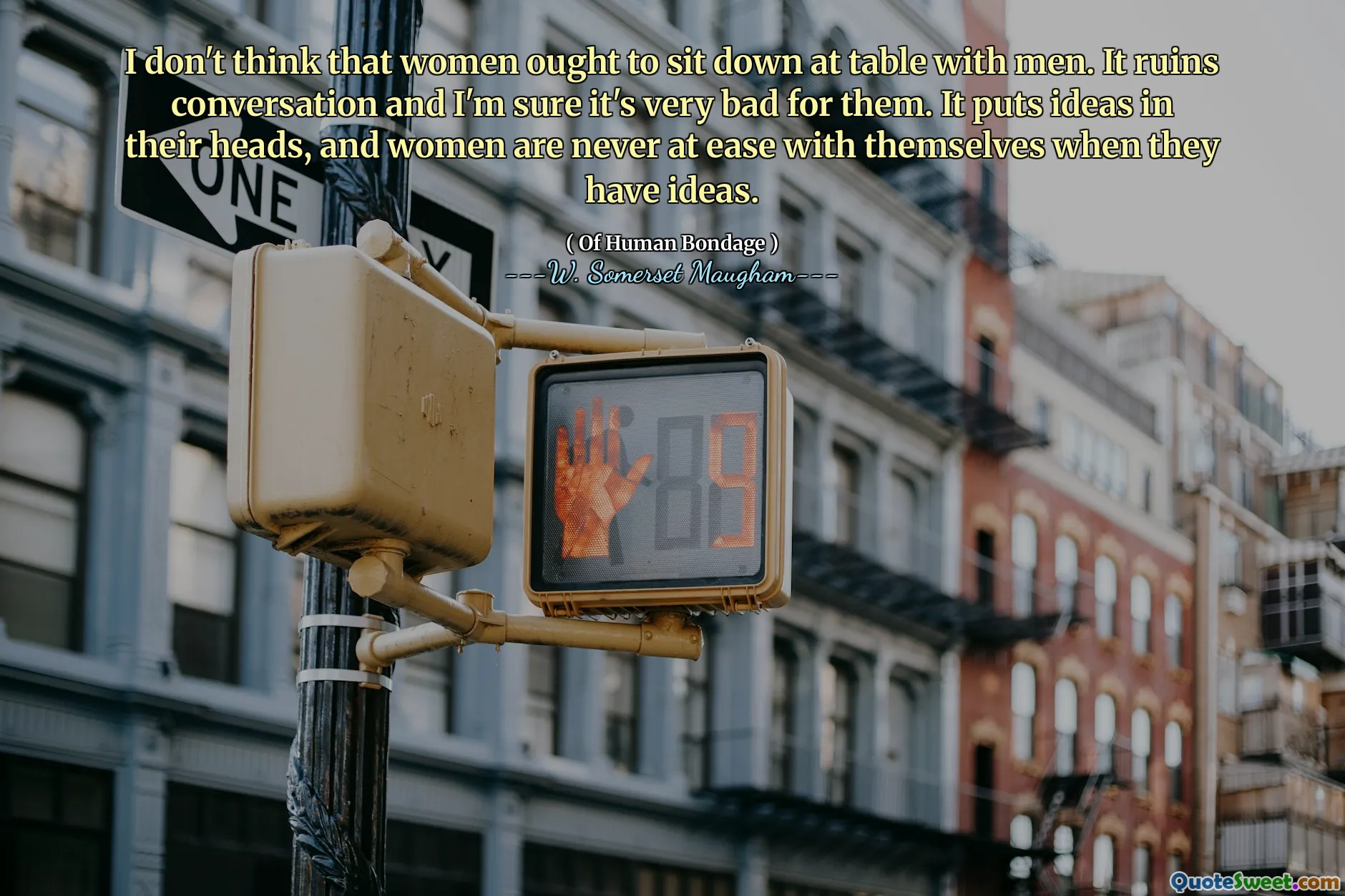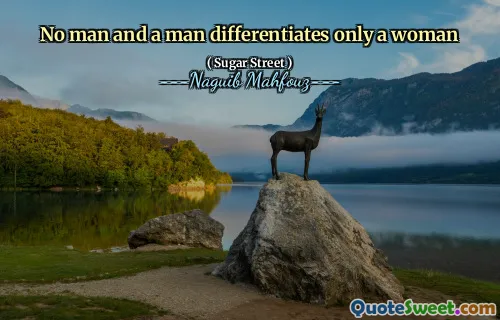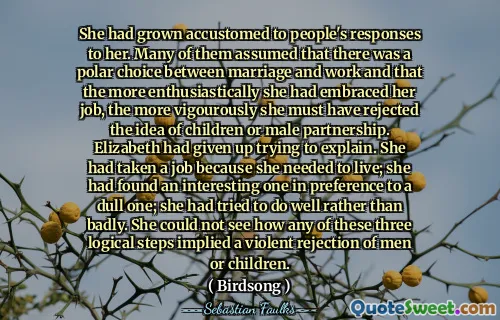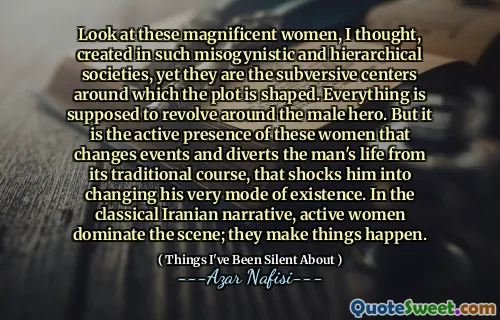
I don't think that women ought to sit down at table with men. It ruins conversation and I'm sure it's very bad for them. It puts ideas in their heads, and women are never at ease with themselves when they have ideas.
This quote from W. Somerset Maugham's Of Human Bondage starkly exposes a sexist and condescending perspective that was prevalent during the author’s time but is deeply problematic even now. The assertion that women's presence and engagement in conversation with men somehow 'ruins' the interaction is reflective of a broader historical tendency to marginalize women intellectually and socially. It reveals a fear of female intellect and agency, implying that ‘ideas’ are dangerous or unsettling for women themselves, rather than empowering. Such ideas perpetuate a gender hierarchy, relegating women to passive, subordinate roles and discouraging their active participation in thoughtful discourse.
In contemporary terms, the quote serves as a reminder of the systemic barriers women have faced and continue to face in claiming their space in intellectual and social dialogues. The justification offered—that women become 'never at ease with themselves' if they have ideas—pathologizes women’s critical thinking, fostering a harmful stereotype that intellectual engagement is incompatible with feminine nature. This perspective not only silences women but also impoverishes conversations by excluding diverse viewpoints.
Reflecting on this, it becomes evident how essential it is to challenge outdated biases and affirm that all individuals, regardless of gender, benefit from inclusive, equitable discourse. The quote acts as an historical artifact highlighting how far society has had to progress—and how necessary ongoing efforts remain—to dismantle prejudices that hinder the full expression of human potential. From a literary standpoint, it also invites readers to question and critically analyze the social attitudes of past eras, recognizing them as products of their time rather than universal truths.





